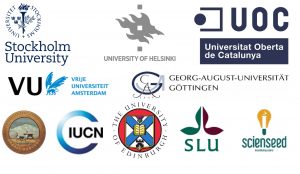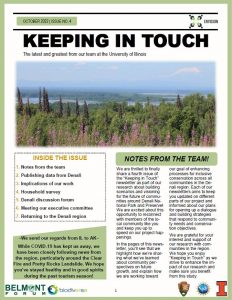Our research is focused on understanding the values of local communities and connections that form between people and places in the region surrounding Denali National Park and Preserve. This region, located in Interior Alaska, has many interest groups with distinct visions for sustainable growth and development that have yet to be integrated across a regional scale. Our specific aim is to establish a process for ‘inclusive conservation’ that incorporates multiple viewpoints into decision-making about resource management. Our goals are to open up a dialogue about community preferences for future growth scenarios and listen to different perspectives on social and environmental change in the Denali region. Over a five-year period, we are collecting qualitative (e.g., interviews, discussion groups) and quantitative (e.g., household survey, participatory mapping) data to learn from local residents and collectively identify ways to strengthen and balance social, ecological, and economic well-being. This project builds on preliminary research conducted from 2015 – 2017.
As part of a larger project we are contributing to, called ENVISION, we are working in four different protected areas, including Denali, to build strategies for how public land management agencies can focus policy in response to community needs and conservation objectives. These additional study sites include communities near Kemmer Rijn reserve (Netherlands), Sierra de Guadarrama National Park (Spain), and the Västra Harg nature reserve (Sweden). All of our study sites represent a diversity of ecological contexts such as marshes, a peri-urban mountain landscape, and agricultural-dominated oak forest. The potential for comparison across communities will allow people living around Denali to learn about how others are balancing competing interests in future growth and development. This comparison will also foster discussions about how protected area management agencies can better represent community interests across a diversity of land use contexts.
Download a copy of our project abstract here
This research is financially supported by:

Collaborators:


